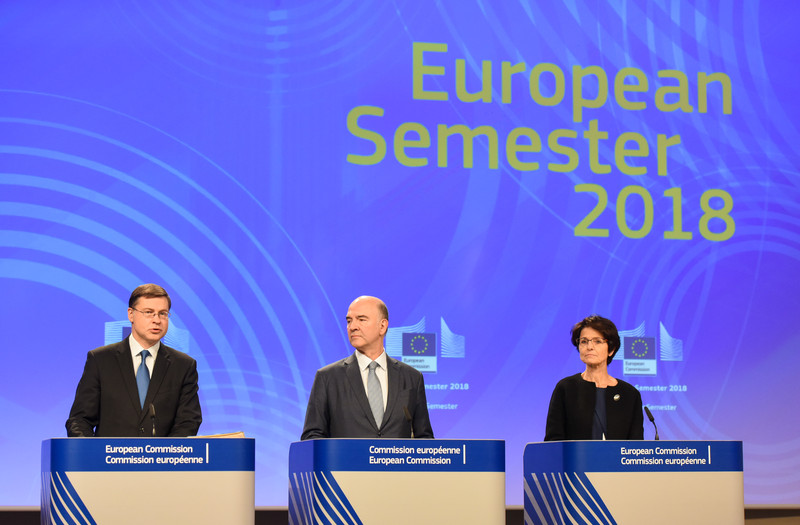Country Specific Recommendations 2018: yet another missed opportunity for equitable and quality education for all
Published:
On 23 May 2018, The European Commission published its Country Specific Recommendations (CSRs) which are part of the Spring package of the 2018 cycle of the European Semester. Addressed to the governments of each European Member State, the CSRs are the culmination point of the European Semester, as they express the voice of the European Commission regarding its assessment of Member States’ need for reform in order to ensure stability and growth and to reach the Europe 2020 strategy targets. The CSRs are to be endorsed by the European Council in June, and formally adopted by the Economic and Financial Affairs Council configuration in July.
ETUCE is pleased to see that in line with the priorities of the European Pillar of Social Rights, the proposed CSRs for Austria, Bulgaria, the Czech republic, Germany, Hungary, Romania, Slovakia and Spain all mention the need for tackle disparities and inequalities in access to, participation in and quality of education for the most disadvantaged, especially students with a migrant background and Roma children. Putting support for teachers at the heart of the recommendations is a positive trend in the CSRs in 2018. The CSRs for the Czech Republic specifically state the need to strengthen the capacity of the education system to deliver quality inclusive education, including by promoting the teaching profession, while the Spanish CSRs mention the need to better support students and teachers. Earlier this year, ETUCE member organisations in these countries had the chance to meet with the European Commission and highlight the challenges for the teaching profession and quality of education, due to deteriorating working conditions, terms of employment and low pay.
Investment remains at the core of the recommendations. However, despite improvement of public finances in the European Union, the European Commission still recommends a neutral fiscal stance for 2018. Such a position reflects the call for more public investment in surplus countries. Yet, the CSRs set a required fiscal adjustment effort consistent with the Stability and Growth Pact for Member States which have not yet reached the medium-term objective. ETUCE regrets the continuous use of the ‘efficiency’ narrative in public services and public investment, worryingly translating into attacks to public services and public education. Commenting on the recommendations, ETUCE European Director Susan Flocken said, “as education trade unions we judge positively the narrative shift which places inclusion and quality of education as a crucial building block for our societies and economies. However, yet again, by reducing the space for public investment and promoting private involvement, the European Commission fails to translate this priority into action. If we are serious to meet the commitments of the UN Sustainable Development Goals to ‘ensure inclusive and equitable quality education for all’ across Europe, our leaders need to show more courage to exclude education investment form the calculation of their debt and deficit targets”.
Click here to read the ETUCE screening of the education-related CSR 2018.